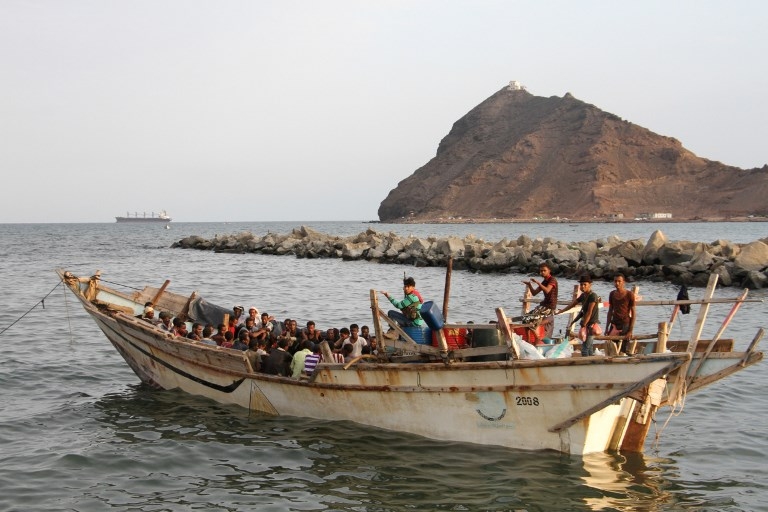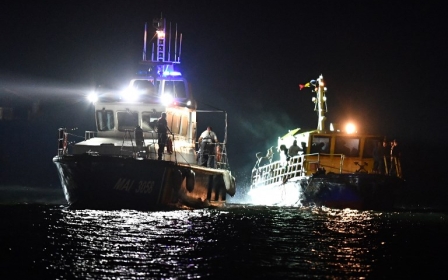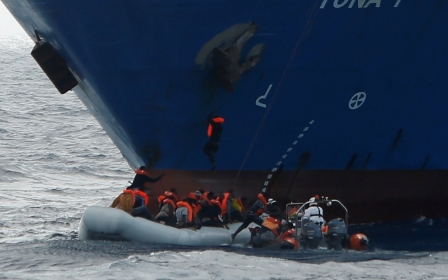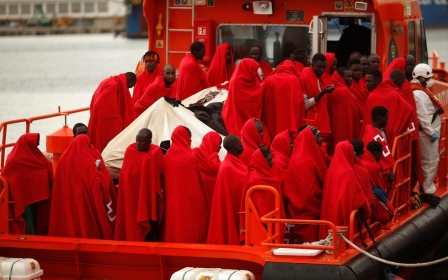Escaping Yemen, 30 refugees drown en route back to Africa

At least 30 African refugees and migrants drowned off the coast of Yemen this week in a boat operated by smugglers who are reported to have fired on passengers, the United Nations said on Friday.
Some 152 Somalis and Ethiopians were aboard the overcrowded vessel which left Aden in southern Yemen on Tuesday and was heading towards Djibouti, the UN refugee and migration agencies said in a joint statement.
"The vessel is believed to have been operated by unscrupulous smugglers who were attempting to take refugees and migrants to Djibouti, while also trying to extort more money from these refugees and migrants," according to the statement.
The boat turned back and "capsized amid reports of gunfire being used against the passengers", it said, adding that it was working with the Yemeni coast guard to try to establish what happened.
"At least 30 people have died in this tragic incident," which occurred near the coast.
The UN has warned in the past that prolonged conflict and insecurity in Yemen exposes vulnerable refugees and migrants to a heightened risk of human rights violations including arbitrary arrest, detention, trafficking and deportation.
More than 9,200 people have been killed in Yemen since a Saudi-led military coalition intervened in 2015 against Houthi rebels with the aim of restoring the country's internationally recognised government to power.
In a report published earlier this month, UNHCR stated that there are 2,014,026 internally displaced persons in Yemen, while an estimated 1,457 families have been forced to flee since December due to the latest escalation in western Yemen. There are currently more than 280,000 refugees and asylum seekers from other countries in Yemen.
Yet the impoverished country continues to draw migrants from the Horn of Africa, many of them seeking work in prosperous Gulf countries further north.
The director-general of the International Organisation for Migration, William Lacy Swing, speaking at Davos, said: “As we have been saying for almost five years now, the preservation of human life is our utmost priority everywhere.
“Yemen is no exception; we are deeply troubled by reports of this latest incident.”
Amnesty International described the tragedy as “heart-breaking” and blamed the continuing hostilities in Yemen for forcing people to take risks on the high seas.
“This heart-breaking tragedy underscores, yet again, just how devastating Yemen’s conflict continues to be for civilians,” said Lynn Maalouf, director of research for the Middle East at Amnesty International.
“Amid ongoing hostilities and crushing restrictions imposed by the Saudi Arabia-led coalition, many people who came to Yemen to flee conflict and repression elsewhere are now being forced yet again to flee in search of safety. Some are dying in the process.
“During almost three years of Yemen’s conflict, all parties have flagrantly flouted international law. Civilian lives have been devastated by indiscriminate bombing and shelling, arbitrary detentions, enforced disappearances and a spiralling humanitarian crisis that has made more than 22 million people reliant on aid to survive.
“The international community must halt arms transfers that could be used in the conflict, cooperate to ensure accountability for war crimes and other serious violations, and pressure the Saudi Arabia-led coalition to fully lift the restrictions on aid and commercial imports of essential goods which are exacerbating one of the world’s worst humanitarian crises.”
In August, dozens of migrants from Somalia and Ethiopia died after human traffickers forced them off two Yemen-bound boats and into the sea.
Last March, a helicopter opened fire on a vessel carrying more than 140 migrants in the Red Sea off the Yemen coast, killing 42 civilians.
A confidential UN report seen by AFP said the attack was most likely carried out by the Saudi-led coalition.
Middle East Eye propose une couverture et une analyse indépendantes et incomparables du Moyen-Orient, de l’Afrique du Nord et d’autres régions du monde. Pour en savoir plus sur la reprise de ce contenu et les frais qui s’appliquent, veuillez remplir ce formulaire [en anglais]. Pour en savoir plus sur MEE, cliquez ici [en anglais].




